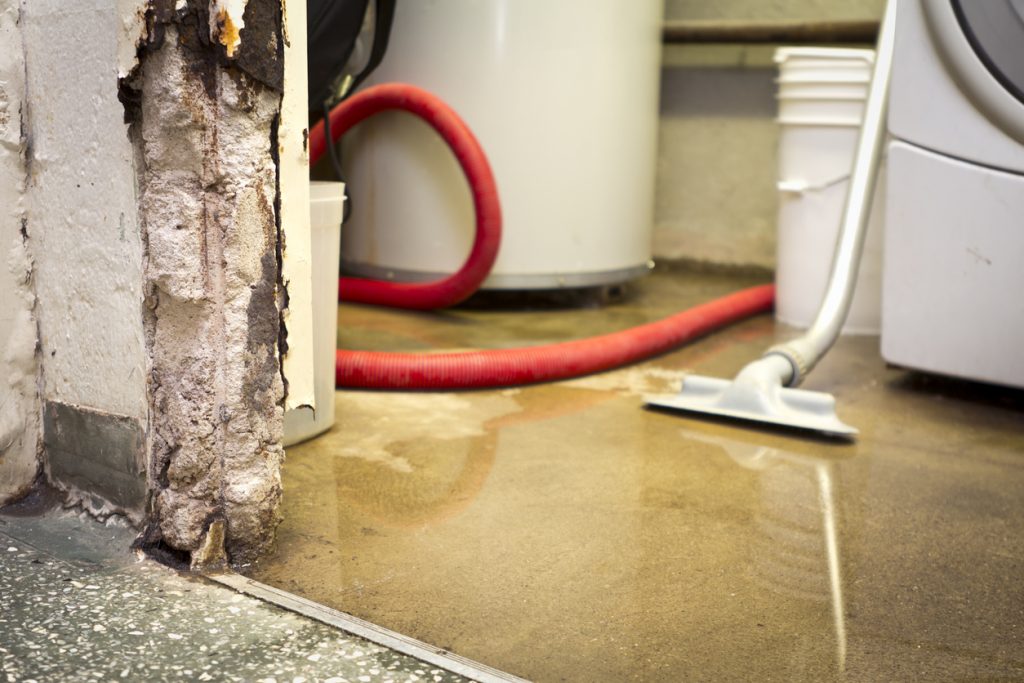Water puddles or even a flooded basement are issues you never want to experience with the boiler heating system in your Northern Kentucky or Cincinnati area home. In our most recent blog, the technicians at Rusk Heating and Cooling explain the common causes behind boiler leaks so you’ll know what to expect when you call us for boiler repairs.
Why Is My Boiler Leaking Water?
A leaking boiler is usually caused by one of the following issues:
1. Boiler Pressure Problems
Pressure builds up inside a boiler, which is alleviated through the unit’s pressure outlet pipe. It is normal for a small amount of water to drip out of this pipe as pressure is released from the tank. If large amounts of water are found below the pipe, excessive pressure could be the cause.
Check the boiler’s pressure gauge. If it is in the red zone, pressure within the boiler is too high. You need to call in a professional to bleed the boiler in order to reduce pressure.
2. Faulty Seals
The metal of your boiler expands and contracts as its temperature fluctuates during operation. These changes can eventually weaken seals, causing a leak. This issue can happen during normal operation and doesn’t always indicate a problem. Over time, rubber seals can harden and crack, leading to leaks.
If faulty seals are causing a leaking boiler, contact an HVAC professional to replace the seals in your boiler system. If your boiler was recently installed and seals are leaking, pressure during operation may be too high and should be professionally adjusted.
3. Loose Joints and Cracked Metal
Temperature fluctuations can weaken the boiler’s metal as time goes on, placing it under stress and causing fatigue. Joints can loosen, causing leaks or cracks to develop in the metal of the boiler tank.
To determine if loose joints are the reason behind the leak, you should check the boiler’s fittings. Dry all pipes, and wait to see if water reappears. If so, you may tighten the joint with a quarter turn of the fitting. If the leak persists, it’s time for professional service.
If cracks appear in the metal walls of your boiler’s tank, this is typically a sign that you are due for boiler replacement.
4. Damage to the Blowdown Valve
The blowdown process helps maintain the boiler when its water is dirty. There is a valve that makes the process possible, which can be damaged and cause leaking. If the blowdown valve is damaged, a large puddle will typically collect below it. This component should be inspected and repaired or replaced by a technician.
5. Heat Exchanger Corrosion
Corrosion to the boiler’s heat exchanger can cause its metal to crack, which leads to leaks. While it may be possible to replace the heat exchanger, oftentimes it’s better to replace the entire boiler system. Consult your boiler technician for inspection and options.
6. Sediment Buildup
If sediment collects within the pressure valve of your boiler, the valve will be unable to fully close, which can cause a leak. You can have your technician check for this issue or inspect it yourself if you feel capable.
- Turn the boiler off and allow it to cool.
- Open the pressure valve to allow water to exit.
- Watch the water that comes out – it should appear clean and free of sediment.
- Close the valve. If water continues to spill out, there could be sediment buildup.
If you suspect sediment buildup in your boiler’s pressure valve, contact your technician to make repairs.
Boiler Repairs by Rusk
If your boiler is leaking water, call Rusk Heating and Cooling immediately. Our technicians inspect boiler systems, pinpoint the cause of leaks, and perform tested repairs to ensure your home stays dry. Contact us today to schedule service.

